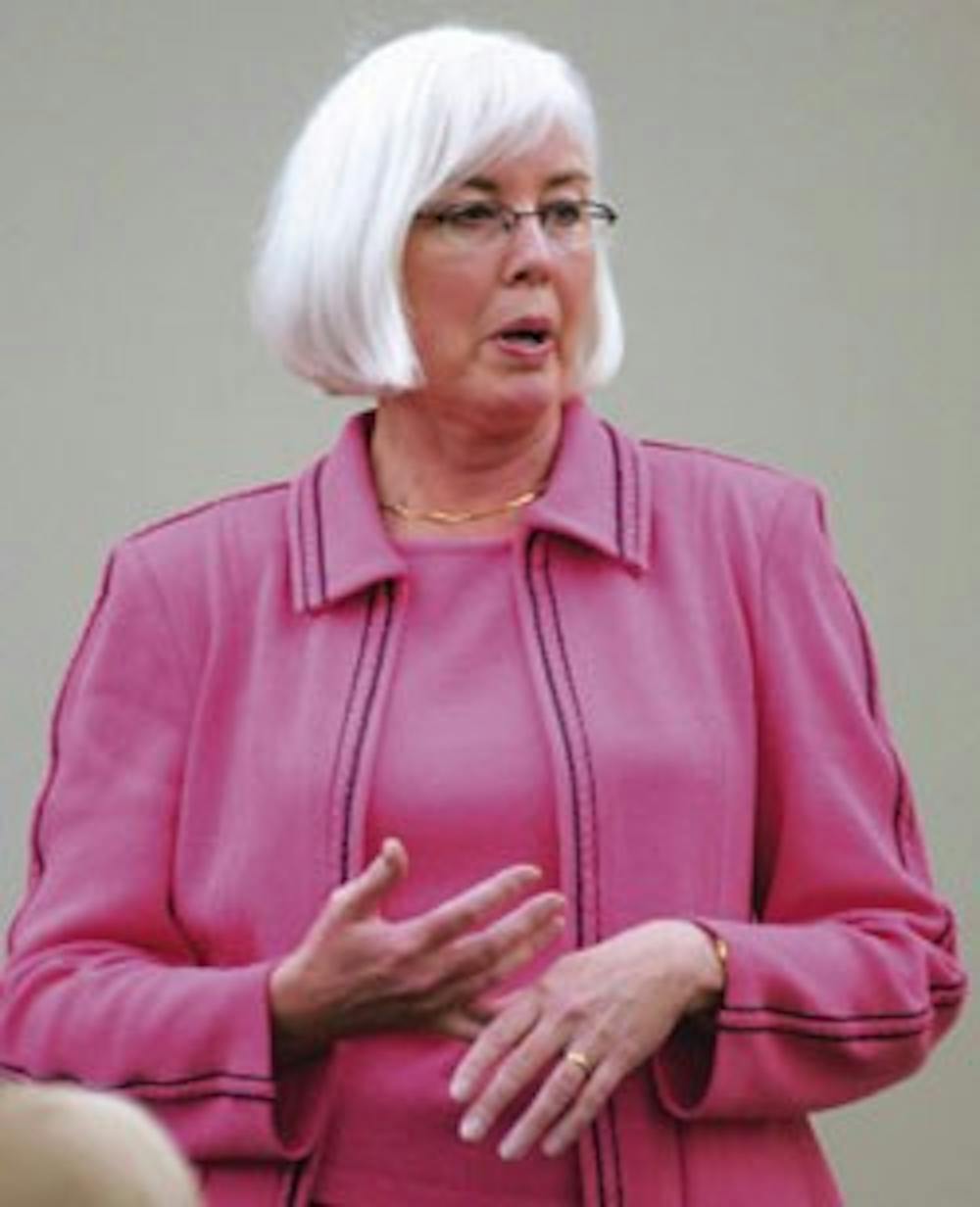by Jeremy Hunt
Daily Lobo
Brenda Claiborne met with about 20 faculty members Monday in the SUB to discuss her experience and plans if selected as dean of the College of Arts and Sciences.
Claiborne will meet with staff today from 11 to 11:45 a.m. in SUB Santa Ana rooms A and B and with students from 1:45 to 2:45 p.m. in SUB Acoma rooms A and B.
Claiborne got her bachelor's from the University of California-Berkeley, her master's from the University of Oregon and her doctorate from the University of California-San Diego.
Get content from The Daily Lobo delivered to your inbox
She said she loves to work with students and watch them learn. Claiborne said she enjoys helping students learn concepts in the classroom that they can apply to research.
Claiborne was dean of graduate studies and associate vice president for research at the University of Texas-San Antonio from 1993 to 1997. She became a professor of biology in 1997.
She has been director of the Institute for Aging Research at the University of Texas-San Antonio since 2004.
Claiborne said she is interested in the University because the faculty is excellent, and there are many first-generation students.
The Daily Lobo asked Claiborne about her experience and plans if chosen for the position.
Daily Lobo: What experience do you have that prepares you to run a college as large and diverse as the College of Arts and Sciences?
Brenda Claiborne: I was graduate dean and associate VP for research. In those positions, I was responsible for research development and graduate programming across the entire university campus. I learned about curriculum requirements, student needs and research requirements in all disciplines. That is what I feel would be needed for this college, where you're dealing with the humanities and the sciences together. Faculty needs in the sciences and student needs in the sciences are often very costly, whereas student and faculty needs in the humanities perhaps don't have such a high dollar requirement, but they're just as important. I have a background in learning to balance those kinds of issues.
DL: What is the biggest challenge facing the College of Arts and Sciences?
BC: I'm not sure I know the answer to that. I've only been here for less than 24 hours. It looks to me so far like the issue is an issue for the institution, which is retention or graduation rates. It's an issue for the institution, but retention and graduation rates are a big issue that needs to be addressed in the college. My second one is finding the resources that are needed in terms of outside funding. Private donations are needed both for faculty development and to fulfill student needs.
DL: What would you do to integrate the departments and promote interdisciplinary study?
BC: In my own discipline, I've worked in computational biology, even though I'm not a computation person. I'm not a computer science person, but I've worked in between those two disciplines. I know that it takes a lot of time and energy to learn another discipline in enough depth to be able to do that. As an administrator, I would want to foster an environment and resources to make that happen.
DL: How would you ensure the success and satisfaction of faculty, staff and students under your leadership?
BC: I would do that by looking at the needs of the faculty, staff and students. What do they need to get their job done for faculty and staff, and what do students need to be successful? We'll take students first. Are the courses being offered in a timely fashion? Are the freshmen classes being offered so they can get through all of them? Are there enough night and weekend classes so students can take those when they have to work during the week? Are we making as much use as we can of tutors at the graduate level so students can go out and get as much money for
scholarships as possible? Those would be the student issues.
For staff, do we have a reward system in place? Do we have staff training and development in place? How can we make them successful in terms of their career, so they feel like they're progressing along in the direction they want to go?
In terms of faculty success, supporting scholarship and any innovative teaching they might use -- what does it mean to support scholarship? It means, is there enough time for faculty to do the research they need to do? Is there enough funding? Do they feel that the reward structure is adequate? How are the interactions between faculty and students in terms of research? Do they have students available who want to help them? And then helping do fundraising for money directed toward
scholarly activity.






